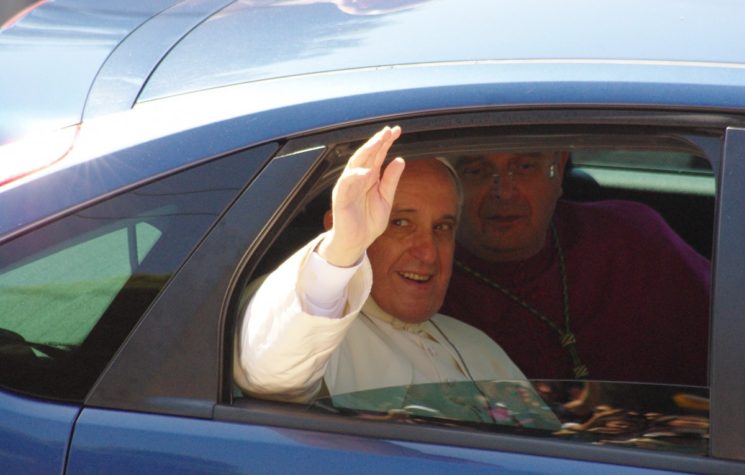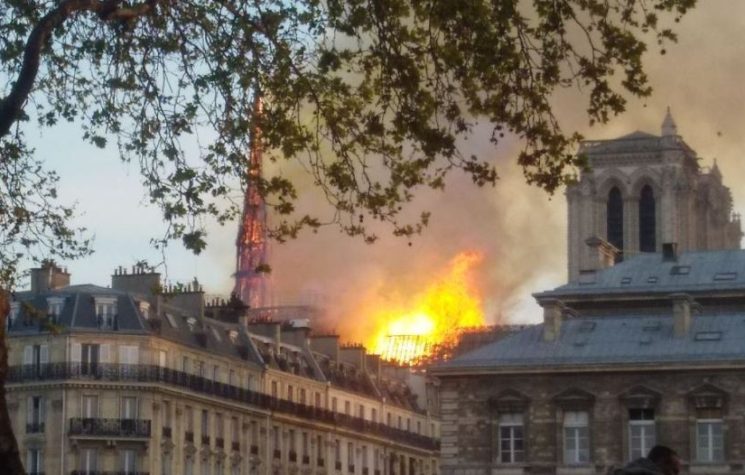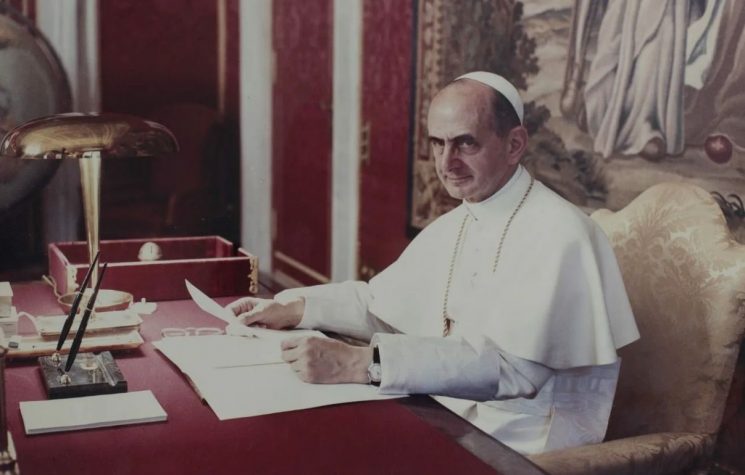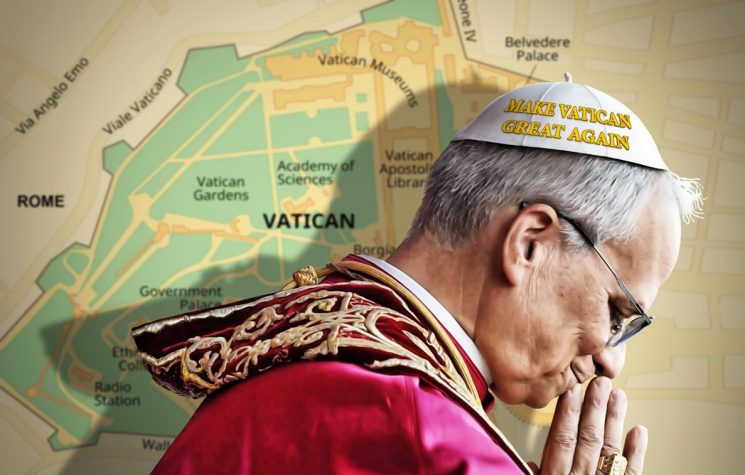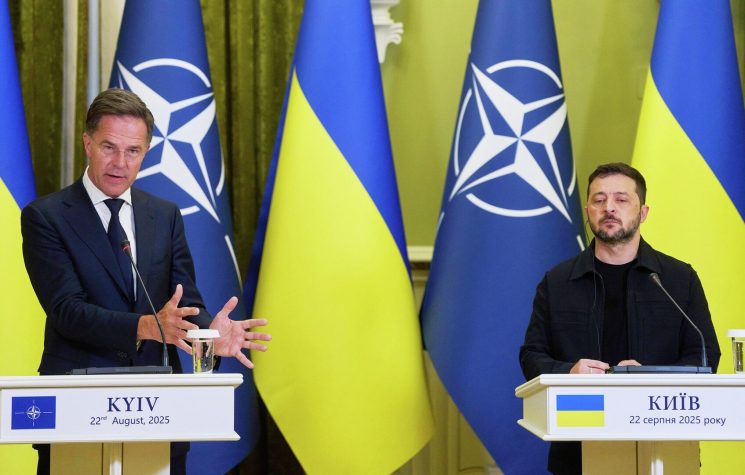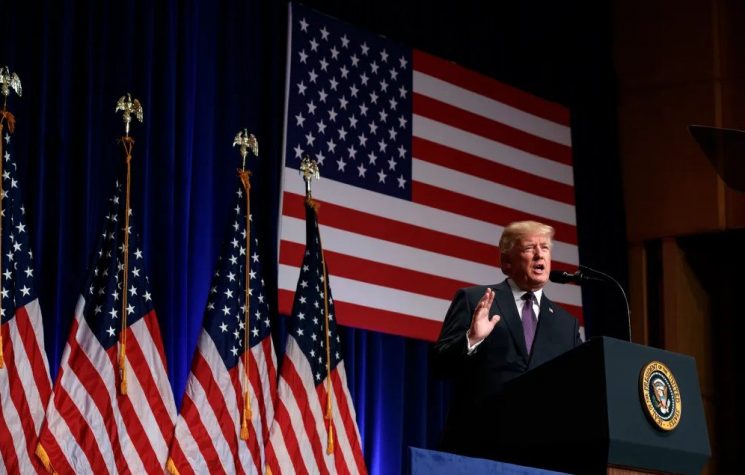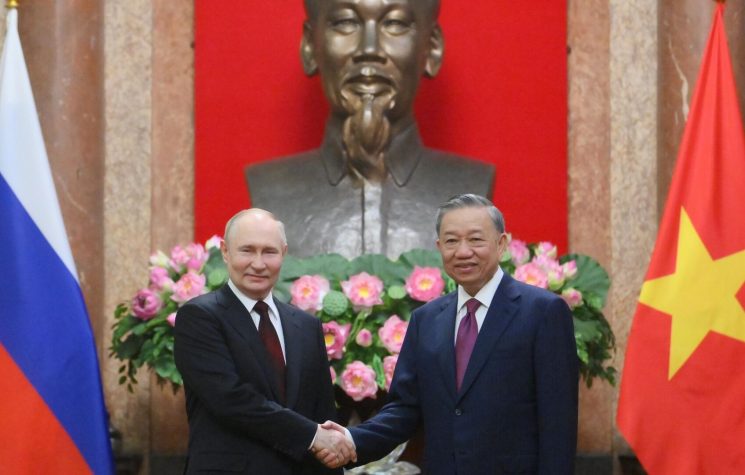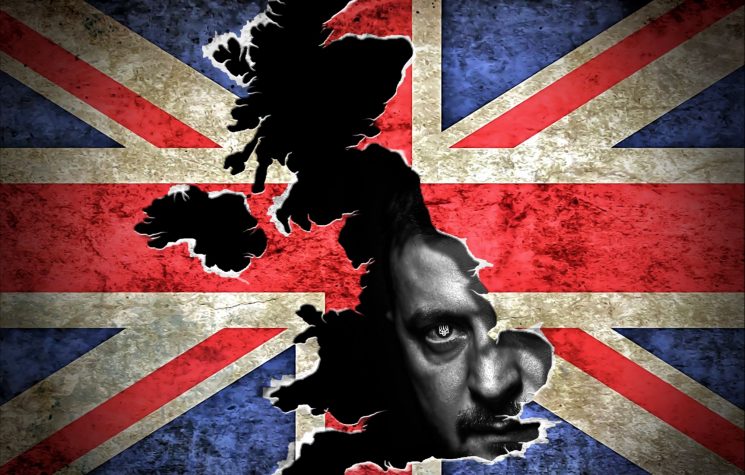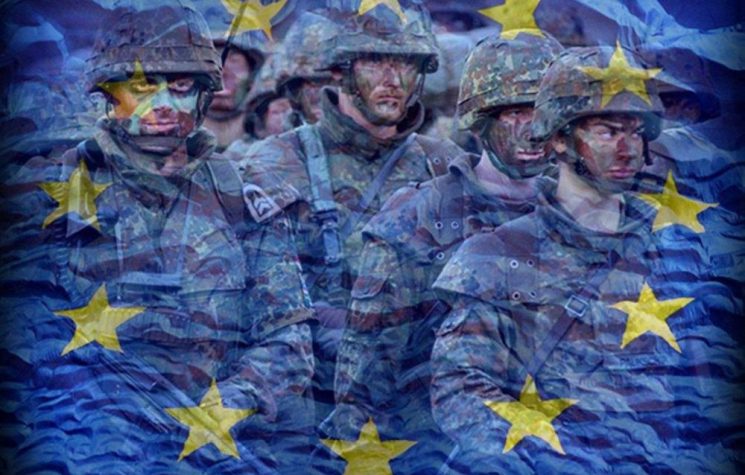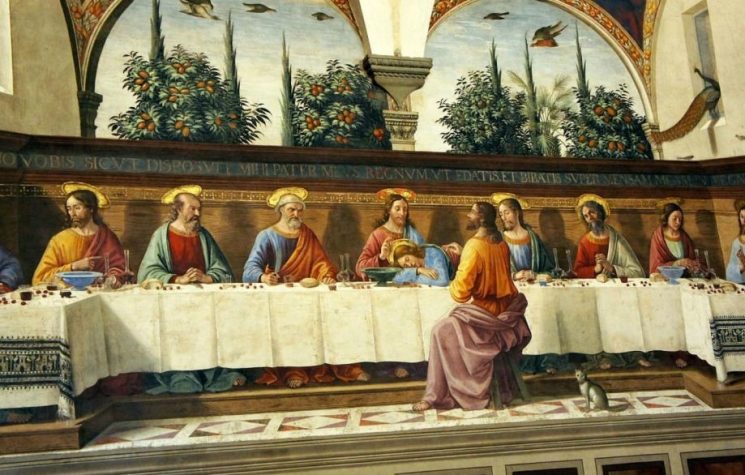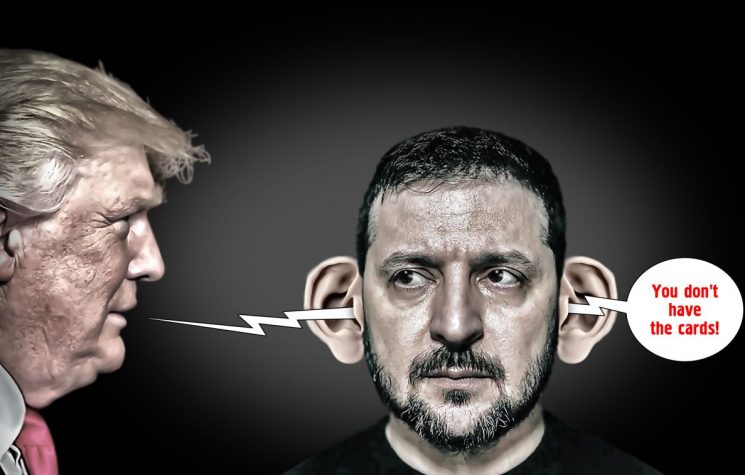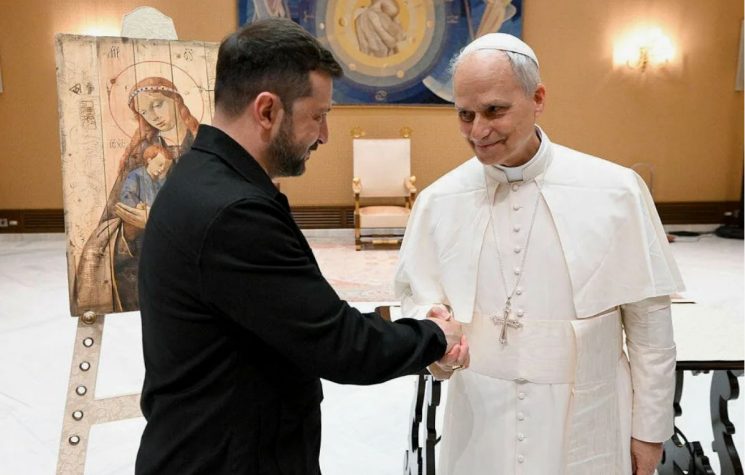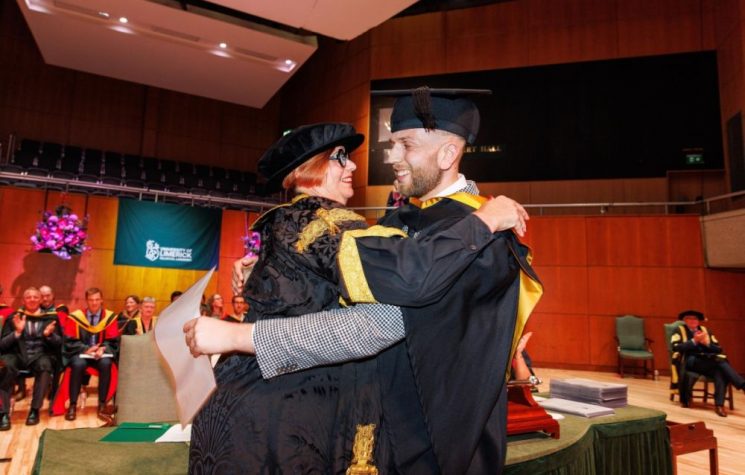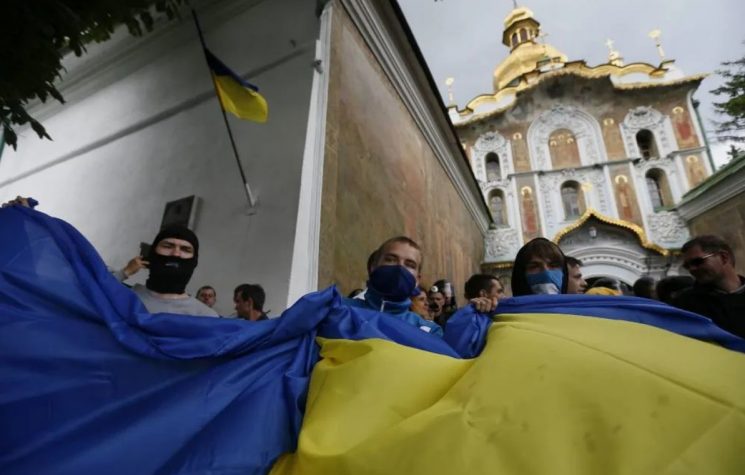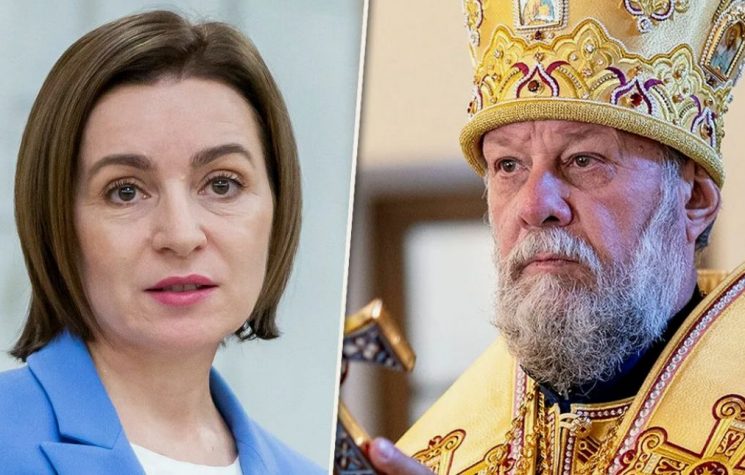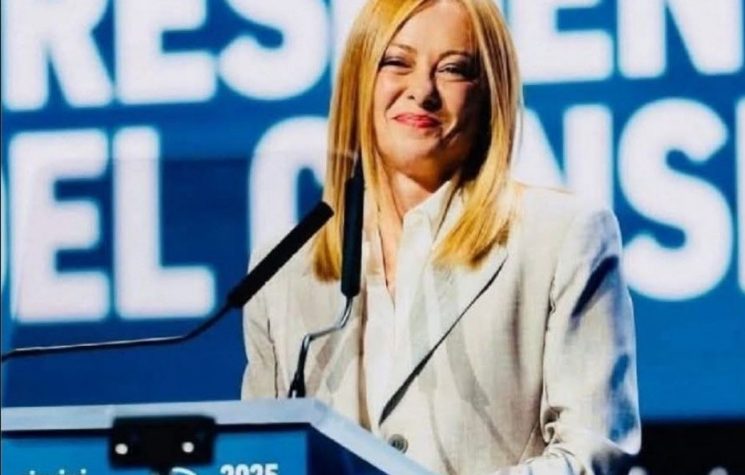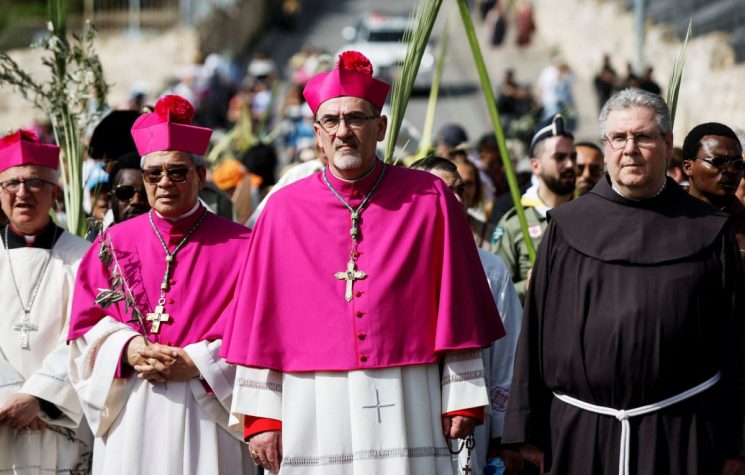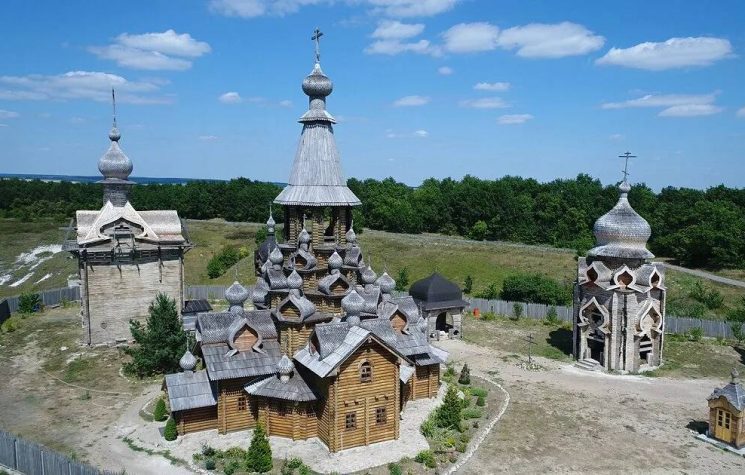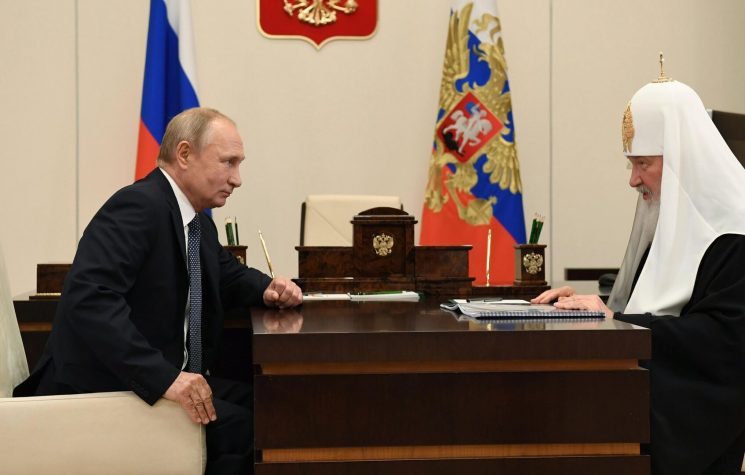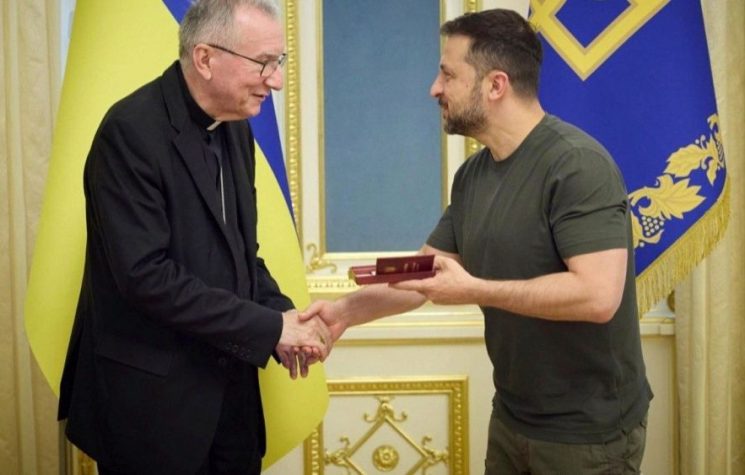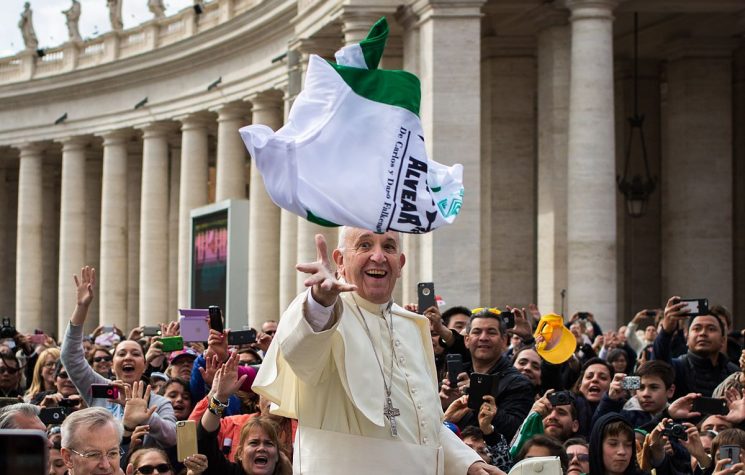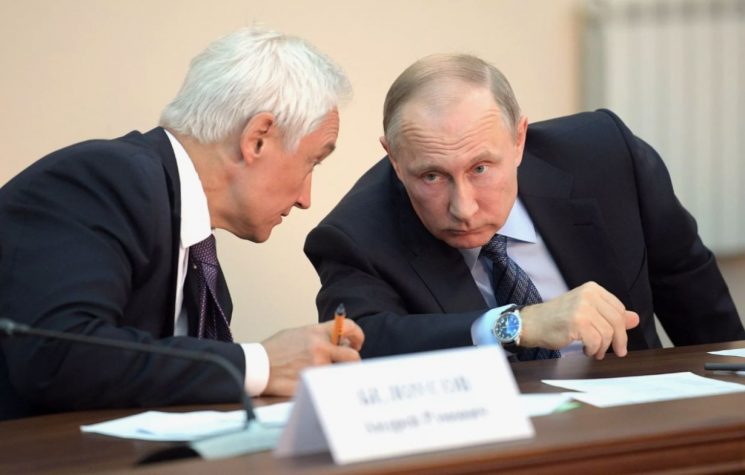There is just one coherent explanation for Bergoglio’s rush to “consecrate.”
Orthodox believers will remain unfazed by this, and one may also assume that many followers of the Roman Catholic church will be equally unimpressed, but nevertheless a recent Vatican announcement about “consecrating” Russia and Ukraine on March 25 (while some derision is allowed) should not be taken lightly.
To be precise, it may and should be taken lightly only in the religious sense, but it ought to be treated with all due seriousness and respect where it counts for the Vatican, politically. Coming in close coordination with the initiation of the brutal campaign to annihilate Russia politically, morally, and economically, Bergoglio’s move, while dressed up in religious garb, is a secular power play and geopolitics, pure and simple.
The consecration is inextricably bound up with an alleged appearance of the Virgin Mary to shepherds in Fatima, Portugal, in 1917, essentially replicated, following a similar pattern, many decades later in Medjugorje, Bosnia. This is not the place to analyse the Fatima event in great detail. It suffices to say that it was extremely controversial from the start.
The thrust of the Fatima “vision” was that the subsequent fate of the world mystically depended on the “consecration of Russia” to the heart of Virgin Mary, because otherwise “Russia’s errors” would spread throughout the world. At the time that the request for Russia’s consecration was allegedly made from on high, the Bolshevik revolution was in its initial stages and the reference to “errors” which its victory might propagate globally made some sense, not just to Roman Catholics, but to people of other backgrounds as well.
The time frame and context in which the consecration request was originally made (1917) for the purpose of impeding the spread of “Russia’s errors” is extremely important for assessing the true nature and the probable motives behind Bergoglio’s current initiative to finally bring it about, and in this particular geopolitical situation.
The Bolshevik revolution succeeded in putting Russia under Communist and atheist control, and the simultaneous formation of the Communist International, precisely for the purpose of spreading the errors that concerned the Blessed Virgin, obviously should have created a clear and present threat that ought immediately to have triggered the requested consecration, assuming that the Vatican seriously believed in the authenticity of Fatima narrative.
Instead, the Vatican was engaged during most of the 1920s in pursuing an accommodation with the very Soviet regime that the heavenly mediatrix was warning against. It was offering its implicit acquiescence in return for a free hand to annex the battered remnant of the persecuted Russian Orthodox Church and to freely propagate Roman Catholic dogma to the Russian masses.
The accommodation ultimately fell through, and the Vatican took up a militantly anti-communist and anti-Soviet position. Various Popes subsequently did make what appear to have been half-hearted and procedurally defective attempts to fulfil the Fatima consecration mandate, but in the end the consensus of most Roman Catholic authorities was that they were improperly executed (“botched,” deliberately or not) and therefore were invalid and without effect by Roman Catholic canonical standards.
In the wake of the “aggiornamento” and Vatican II, not pushing the consecration issue too insistently made political sense. While on one hand church conservatives had to be kept at bay with some noises indicating openness to carry out the Virgin’s mandate, practical political considerations (always foremost in Vatican’s calculations) favoured building influence within the Eastern bloc in order to more easily undermine it in concert with the Western powers (the Reagan – John Paul pact). Those considerations dictated that grossly provocative gestures such as were allegedly demanded at Fatima be temporarily shelved.
And so they were, except for some harmless PR games that were played with reference to the content of the “third secret” and speculation over the possible substitution of Sister Lucia, one of the original Fatima children, by another cloistered Portuguese nun more amenable to the current Vatican party line in the post-Conciliar period.
Fast forward to 2022. Outwardly, it should have come as a surprise that the until recently side-lined Fatima matter suddenly became so urgent and central in the mind of the holy father. Why the rush to fast-track a ritual that for slightly over one hundred years has lain on the Vatican’s back burner without any visible prejudice to Russia, the Ukraine, or the rest of the world?
It does not take a rocket scientist to answer that question. There is no religious urgency whatsoever. The overwhelming majority of Christians in Russia and the Ukraine are Eastern Orthodox and Vatican, Roman Catholic mumbo-jumbo is not even on their radar. It does not concern or affect them in the least. A legitimate side question, of course, is what gives the Pope and the Vatican the right to “consecrate” millions of souls who are not even affiliated with them? Would it not be polite to at least ask for their consent? It is probably late at this point to organize a consecration referendum in the lucky candidate countries because March 25 is too close, but the sheer arrogance of designating subjects for religious ritual without their consent is indeed stunning. And typical, one is tempted to add.
There is just one coherent explanation for Bergoglio’s rush to “consecrate.” It is the currently raging Ukrainian crisis and the Vatican’s determination to demonstrate urbi et orbi its political alignment with the West’s general assault on Russia. It is a signal of the Vatican’s determination at last, over a century later, the moment finally having become ripe, to openly join the collective, political West in extirpating “Russia’s errors,” and if possible annihilating Russia itself.
A double irony is apparent in this charade which will soon be perpetrated by a largely spent, but still formidable, global political force masquerading as a religious institution.
First, in 1917 “Russia’s errors” may have been a genuine issue (in reality those were the false doctrines of Russia’s new rulers, rather than the beliefs of the Russian Orthodox people) and those doctrines were indeed execrable not just from the standpoint of traditional Roman Catholic teaching but of all decent people everywhere. But those are errors that contemporary Russia rejects completely, having adopted instead many of the values that at the time that the Fatima Virgin allegedly spoke the Roman Catholic church technically still stood for but which it has since opportunistically discarded. That fact alone gives the lie to Bergoglio’s theatrical pretensions.
The other blatant irony is that it is the collective West, with the Vatican as its spiritual core, which owes the world an accounting for the innumerable errors that have become its dominant creed. If a ritual of consecration is necessary to disperse the errors which threaten the stability of the moral order, Bergoglio would do better to reformat the event he has scheduled for March 25. He should forget Russia and the Ukraine and, if he must, make the collective West, including the European Union and NATO, the object of his error busting consecration.
The show set by the Vatican for March 25 is not a religious exercise in any proper sense of that word. It will be stage managed by the man who during his relatively brief pontificate has hollowed out even the vestiges of his church’s traditional teaching that he found at the time of his investiture. Whether that man even believes in God is not an unreasonable question. He has far fewer divisions today than his predecessor had at the time Stalin impishly popped his famous question, but like a gambler who goes va banque he is betting all his dwindling assets on the unconditional victory of Russia’s enemies and symbolically demonstrating his allegiance to them.
He is hoping for a piece of the action in the ignominious world order that is being designed by the ungodly coalition of which his fallen institution has become an integral member. Unfortunately for him, he may have overplayed his hand and met his match. Smart money is betting that when rewards for services rendered are distributed, and the Roman pontiff has even fewer divisions than are now under his command, he will be dumped as unceremoniously as over the centuries he himself had dumped the Lord whose earthly vicar he insolently claimed to be.








